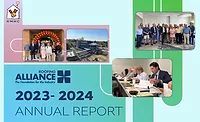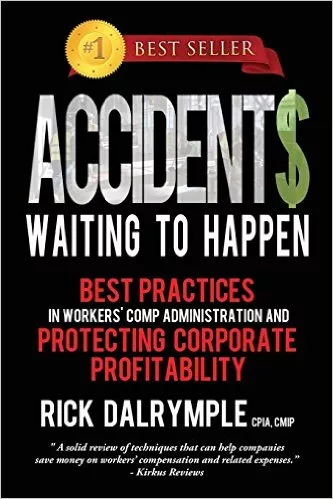Crime Blotter
Roofing Owners Indicted by Feds in $2M Tax Fraud
Two roofing businesses in New York and New Jersey face a bevy of charges related to shell game fraud

Alina Habba, the acting U.S. Attorney for New Jersey, announced indictments against two roofing company owners who employed check-cashing schemes to conceal over $2 million in income and now face felony tax charges.
— Image courtesy of WHYY
Federal authorities indicted two roofing company owners last week in Newark, N.J., for failing to file tax returns and pay tax on over $2 million in income from their roofing businesses.
The indictment names Steve Mitchell, also known as “Sonny Mitchell,” of Edison, N.J., and Samuel Mitchell of Bohemia, N.Y., who were each charged with four counts of tax evasion, according to a May 1 news release by the U.S. Attorney’s Office in New Jersey.
According to court documents, from 2018 through 2021, the Mitchells and their associates operated roofing businesses under multiple trade names. Steve Mitchell collected nearly $882,000 and Samuel Mitchell took in close to $1.4M in customer payments.
The indictment also alleges that Steve Mitchell converted more than $4.2 million in checks from an elderly investor — who believed she was funding a COVID‑related mask venture — into unreported cash during 2020 and 2021.
Prosecutors allege neither man filed returns nor paid federal income tax on the amounts.
RELATED
Contractor Receives 18-Month Prison Sentence for Tax Fraud
Instead, the men, who share a surname but have not been identified as related in court documents, took affirmative steps to conceal their income from the IRS, including by providing false social security numbers to check-cashing businesses that they used to convert customers’ checks to cash.
Their actions prevented the check-cashing businesses from reporting the cashed checks to the IRS as the law requires.
Under federal law, any business receiving more than $10,000 in cash in a single transaction or related transactions must file Form 8300 to report the payment.
Each count carries a maximum penalty of five years in prison and up to $250,000 in fines. The charges are accusations, and the defendants are presumed innocent unless and until proven guilty. The case is pending in the U.S. District Court for the District of New Jersey.
“Mr. Mitchell denies these allegations,” said Michael Baldassare, the attorney representing Steve Michell, told the news website NJ.com. “We will defend him to the fullest extent of the law.” Samuel Mitchell’s defense attorney did not immediately respond to a request for comment.
Financial crime experts have long warned that check‑cashing schemes are a red flag in construction.
The Financial Crimes Enforcement Network, a division of the U.S. Treasury Department, sent out a notice warning how shell companies deposit clients’ checks at cash‑cashing facilities and return bulk cash, minus fees, to contractors. These contractors then pay workers under the table, evading payroll tax and workers’ compensation obligations.
Industry Implications
Roofing contractors rely on trust among customers, suppliers and insurers to win bids and maintain margins. When high‑profile operators are indicted for financial crimes, it heightens scrutiny across the sector.
“The IRS has historically considered construction a high‑risk compliance industry because of its potential for cash transactions, underreported income and worker misclassification,” said John Kirsch, a CPA advisor to construction firms based in the Cincy Tristate region.
 Small business underreporting is a major driver of the federal tax gap, which the IRS estimates at $696 billion for tax year 2022, $433 billion of which stems from underreported income.
Small business underreporting is a major driver of the federal tax gap, which the IRS estimates at $696 billion for tax year 2022, $433 billion of which stems from underreported income.
The Trump administration has spent the last several weeks trying to root out fraud, waste and abuse within government through its Department of Government Efficiency program, headed by Tesla owner Elon Musk.
However, cuts to the IRS personnel make these frauds more difficult to detect without sufficient manpower.
Tax‑fraud convictions carry serious consequences: In fiscal year 2023, 63.6% of convicted tax offenders received prison time, with an average sentence of 16 months, according to U.S. Sentencing Commission statistics.
Ethical Practices as Bulwark
Industry and government advisers urge contractors to minimize cash dealings, adopt digital payment platforms and engage third‑party payroll services.
Regular internal audits and rigorous bookkeeping guard against inadvertent errors and deter willful evasion.
As one IRS audit‑technique guide warns, payment by check alone is “an insufficient control to validate income”— contractors must reconcile bank deposits, ledgers and job‑cost records to ensure accuracy.
Quick Read: 5 Takeaways
- Tax Evasion Risks Are Real: The Mitchell indictment highlights the serious legal consequences of failing to report income and file federal tax returns.
- Check-Cashing Schemes Raise Red Flags: Converting business checks to unreported cash via check-cashing services is a known tactic for evading taxes.
- Cash-Heavy Industries Face More Scrutiny: Roofing and construction are high-risk sectors for underreported income and worker misclassification, making them targets for IRS audits.
- Reputation Matters: Financial misconduct by a few operators can tarnish trust across the industry, impacting how insurers, suppliers, and clients view all contractors.
- Compliance Is Competitive Advantage: Transparent bookkeeping, third-party payroll, and digital payments not only prevent legal issues — they build long-term credibility.
For roofing contractors, the Mitchell indictment is a cautionary tale: financial integrity is as critical to long‑term success as quality workmanship. Maintaining transparent records and timely filings protects individual firms and an industry's reputation built on trust.
Samuel Mitchell’s defense attorney did not immediately respond to a request for comment.
Looking for a reprint of this article?
From high-res PDFs to custom plaques, order your copy today!








